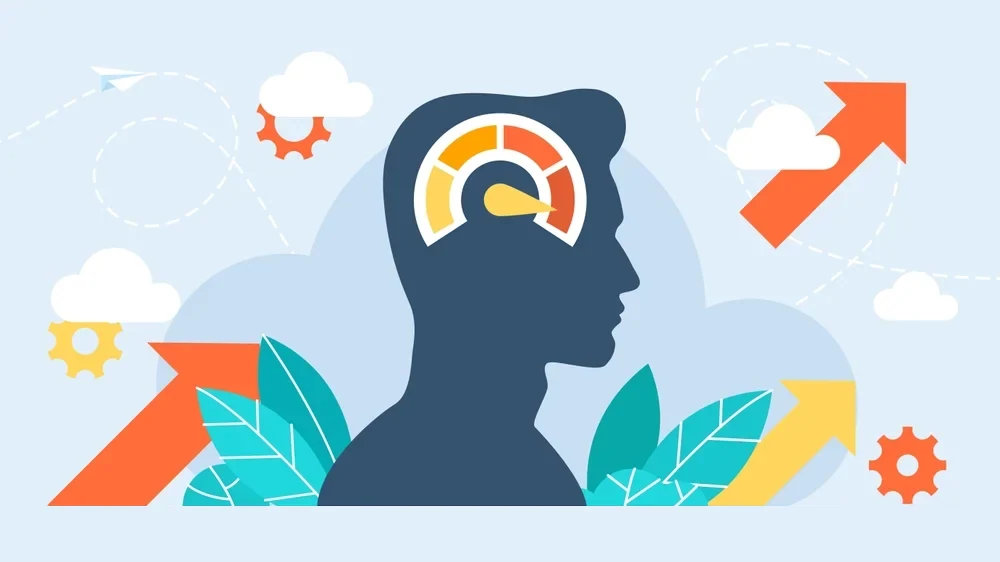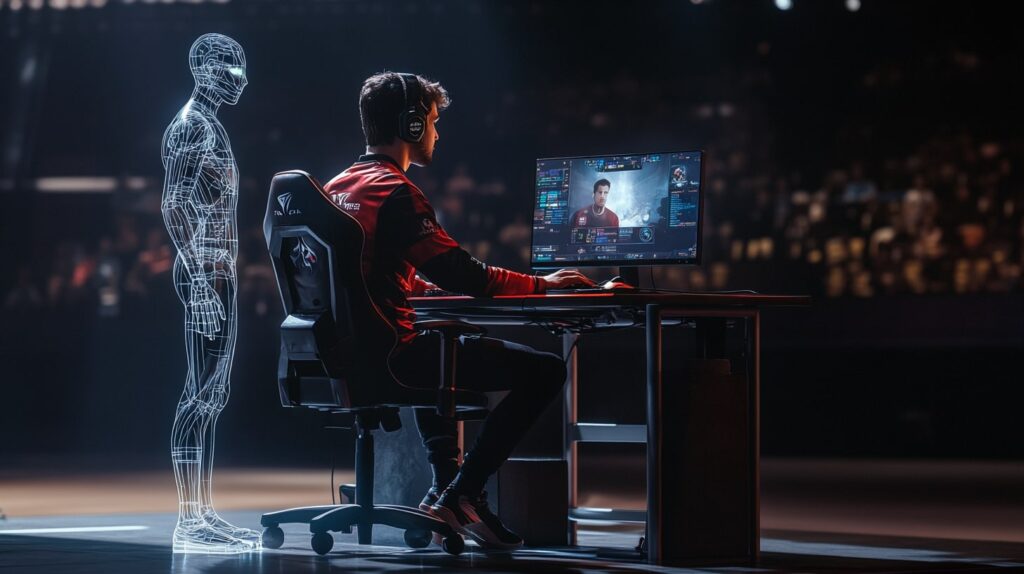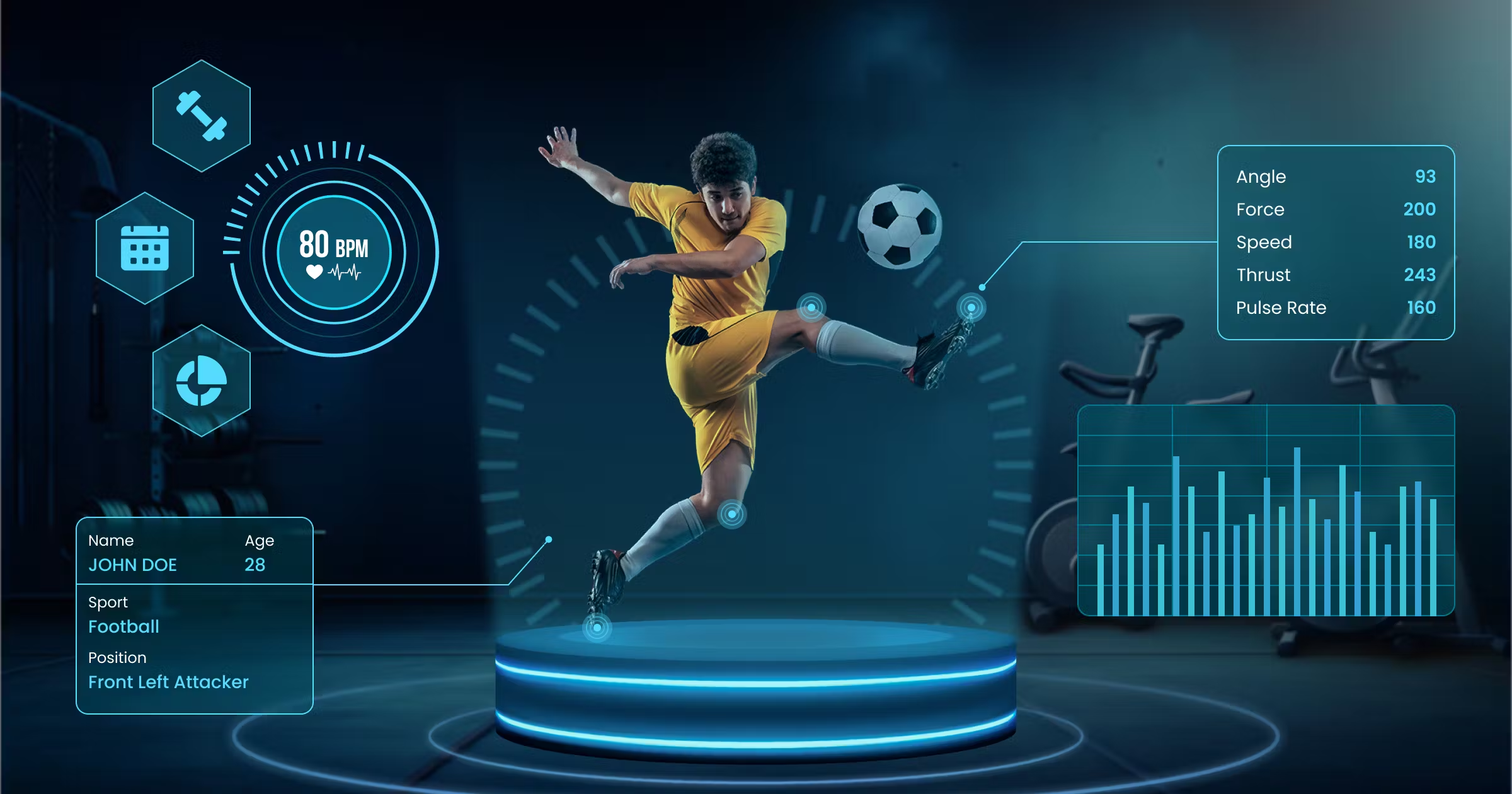AI Sports Analytics is revolutionizing nearly every industry and the world of sports is no exception. From real-time performance tracking to predictive game strategies and talent scouting, AI is reshaping the way athletes train, coaches make decisions, and fans engage with their favorite teams.
Gone are the days when success in sports depended solely on human intuition and physical conditioning. Today, data and algorithms are powerful players on the field, redefining what it means to gain a competitive edge.
In this post, we explore how AI is taking sports into the future—from virtual coaches to smart scouting and beyond.
1. Virtual Coaches Are Redefining Athletic Training

AI-powered virtual coaches are becoming invaluable tools for athletes of all levels. These platforms go far beyond standard fitness apps.
-
Use motion sensors and cameras to track posture, speed, and movement patterns
-
Provide real-time corrective feedback based on biomechanical analysis
-
Create personalized training regimens based on performance data
-
Adjust workout intensity automatically to prevent injury or fatigue
-
Offer mental training modules using AI to improve focus and decision-making
Whether you’re a professional athlete or a weekend warrior, virtual coaching platforms deliver precision that human trainers can’t always match.
2. Smart Scouting and Talent Identification Are Driven by Data
Traditionally, scouting relied heavily on in-person observation and subjective judgment. Now, AI makes talent identification more scientific and scalable.
-
Algorithms analyze player statistics from thousands of games in minutes
-
Machine learning models spot potential in overlooked or underrated athletes
-
AI evaluates physical attributes, reaction time, and even behavioral traits
-
Teams can simulate how a player would perform in different formations or roles
-
Youth development programs use AI to track long-term performance trends
From grassroots academies to elite clubs, AI is leveling the playing field when it comes to finding the next superstar.
3. Game Strategy and Tactics Are Enhanced by Predictive Analytics

In competitive sports, the margin between victory and defeat is razor-thin. AI helps teams tip the balance in their favor through advanced game planning.
-
Analyze opponents’ play styles, formations, and weaknesses using past data
-
Run simulations to test different tactical scenarios before game day
-
Recommend substitutions based on player fatigue and performance metrics
-
Offer live feedback to coaches during matches for smarter decision-making
-
Predict injury risks using wearable tech data and AI models
With these tools, teams can outthink—not just outplay—the competition.
4. AI Wearables Track Every Move with Unmatched Accuracy
Smart wearables powered by AI are becoming essential in both training and in-game performance monitoring.
-
Devices like GPS vests and smart insoles gather data on speed, distance, and movement efficiency
-
AI processes this data to deliver insights on form, balance, and stress points
-
Coaches can adjust training programs to optimize strength and endurance
-
AI helps detect early signs of overtraining or injury risk
-
Players get visual dashboards to understand and improve their own performance
These wearables transform raw data into actionable insights for players and coaching staff alike.
5. Fan Engagement Is Getting Smarter with AI Sports Analytics

The impact of AI isn’t limited to athletes and teams—it’s transforming how fans interact with sports, too.
-
Chatbots answer fan queries and sell tickets on websites and apps
-
AI curates highlight reels personalized to fans’ favorite players or teams
-
Augmented reality experiences bring fans closer to the game from anywhere
-
Predictive models offer betting tips and match outcome forecasts
-
Social media listening tools powered by AI analyze fan sentiment in real time
In short, AI is making sports more interactive, immersive, and personalized for every viewer.
6. Refereeing and Fair Play Are Being Reinvented with AI Sports Analytics
Controversial calls can change the course of a game—but AI is working to bring more fairness and accuracy.
-
AI-assisted systems help referees with offside decisions in football (soccer)
-
Smart cameras and instant replay tech reduce human error
-
AI can analyze fouls, boundary lines, and goal-line technology in real time
-
Advanced analytics ensure consistent officiating standards across matches
-
Some leagues are piloting full-automated officiating using computer vision
By removing ambiguity, AI protects the integrity of competitive sports.
7. Mental Conditioning and Cognitive Performance Optimization

Peak physical performance isn’t enough in elite sports—mental sharpness plays a huge role.
-
AI-driven platforms assess decision-making speed and stress responses
-
Apps deliver mindfulness exercises tailored to athletes’ psychological profiles
-
Virtual reality powered by AI simulates high-pressure game situations for practice
-
Coaches receive data-driven insights into an athlete’s mental readiness
-
AI can flag behavioral changes that may indicate burnout or anxiety
Mental coaching powered by AI ensures athletes are not just fit—but also focused.
8. Injury Prevention and Rehabilitation Are Now AI-Centric
One of the most valuable contributions of AI to sports is in keeping players healthy and speeding up their recovery.
-
Machine learning models predict injuries before they happen
-
Wearable data tracks muscle fatigue and biomechanical stress
-
Rehab programs use AI to customize physiotherapy routines
-
Virtual rehab assistants guide athletes through exercises safely
-
AI monitors recovery milestones and alerts coaches of setbacks
Minimizing injury time and maximizing safe returns give teams a major competitive advantage.
9. AI Sports Analytics Esports Coaching and Analytics

Esports is one of the fastest-growing sectors in modern sports, and AI is helping gamers play smarter.
-
Track performance metrics like reaction time, aim precision, and in-game decision-making
-
AI breaks down team strategies and recommends optimizations
-
Coaches use heatmaps, kill-death ratios, and action timelines for reviews
-
Real-time coaching systems offer advice mid-game based on opponent behavior
-
Predictive algorithms anticipate player patterns and provide counter-strategies
Even in digital arenas, AI is proving to be the ultimate coach and strategist.
10. The Future of Sports Is Hybrid: AI + Human Intuition
While AI has unlocked incredible potential, the best results often come from collaboration—not replacement.
-
Coaches use AI for support, but final decisions still come down to experience
-
Athletes combine human instinct with machine precision
-
AI frees up time for professionals to focus on strategy and creativity
-
Fans enjoy deeper engagement while maintaining the emotional core of the game
-
Sports federations are building ethical guidelines to balance innovation and fairness
The synergy between AI and human skill is where the future of sports truly shines.
Conclusion: AI Sports Analytics—And We’re Just Getting Started
From grassroots development to global championships, AI is changing the way we play, watch, and understand sports. It’s enhancing performance, improving safety, and unlocking new levels of strategic depth.
-
Virtual coaches and smart scouting are becoming the norm
-
Fans are enjoying more immersive and personalized experiences
-
Data-driven decisions are replacing guesswork
-
Injuries are prevented, not just treated
-
Athletes are reaching their peak, both physically and mentally
As AI continues to evolve, its role in sports will only grow deeper and more transformative. The game has changed—and the future is faster, smarter, and more connected than ever before.


